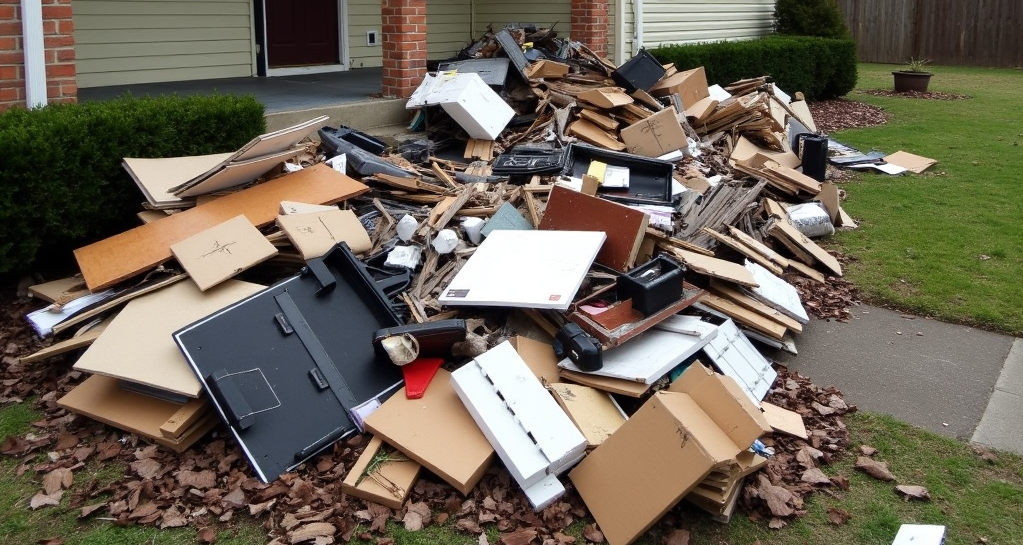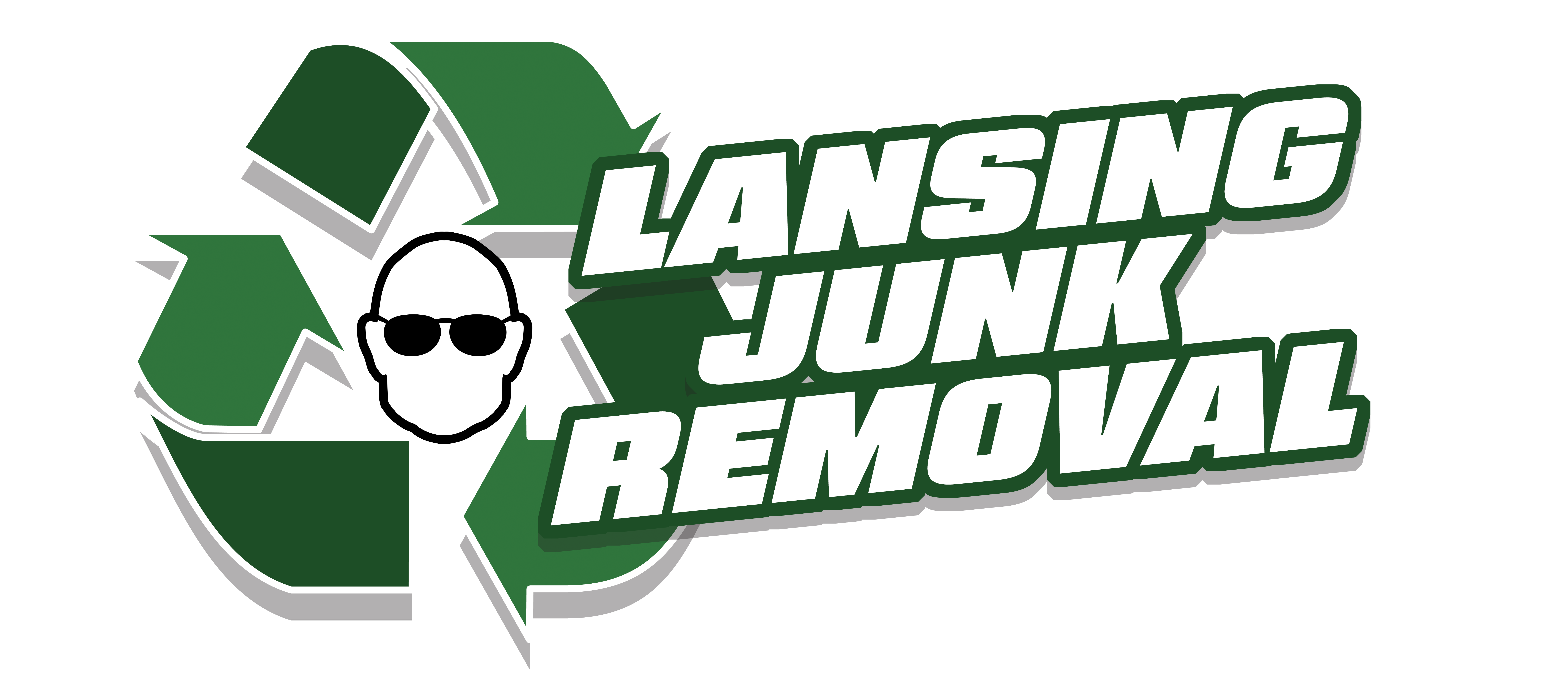Efficient debris removal services require careful planning, and one of the most significant factors affecting these operations is weather. In Jackson, Michigan, and surrounding areas, seasonal weather patterns create unique challenges and opportunities for property owners seeking junk and debris removal. Genesis Removal specialists understand how different weather conditions impact the debris removal process and offer this guide to help customers plan accordingly.
Seasonal Weather Patterns in Michigan
Michigan experiences four distinct seasons, each presenting different considerations for debris removal services. Winter brings snow and freezing temperatures, spring often includes heavy rainfall, summer can be hot and humid, and fall introduces falling leaves and variable temperatures. Understanding these patterns helps property owners schedule debris removal at optimal times.
During winter months, snow accumulation can conceal debris and make removal more challenging. Frozen ground might complicate the removal of heavier items, while icy conditions create safety hazards for removal teams. However, winter can be an excellent time for indoor cleanouts and basement debris removal since these areas remain protected from the elements.
Spring brings thawing conditions that often reveal winter debris accumulation. The ground softens, making it easier to remove embedded items, but spring rains can create muddy conditions that complicate vehicle access and increase the risk of property damage during removal operations. Many property owners schedule debris removal services early in spring before the rainy season intensifies.
Summer provides ideal conditions for most outdoor debris removal projects. Longer daylight hours allow for extended work periods, and dry conditions facilitate easier access to removal sites. However, extreme heat can pose safety concerns for workers and may necessitate scheduling projects during cooler morning or evening hours.
Fall debris removal often focuses on clearing fallen leaves, branches, and seasonal yard waste. Preparing properties before winter arrives becomes a priority for many customers. The variable weather of autumn requires flexibility in scheduling, as sudden rain or early frost can alter removal plans.
Weather Events That May Delay Services
Certain weather events necessitate rescheduling debris removal services for safety and efficiency reasons. Thunderstorms pose immediate dangers due to lightning strikes and high winds. Heavy rainfall creates slippery conditions and can damage property when heavy equipment operates on saturated ground. Extreme temperature events, whether hot or cold, may require schedule adjustments to protect worker health and equipment functionality.
Snow and ice events present obvious obstacles to debris removal, particularly for outdoor waste. When accumulation exceeds a few inches, visibility decreases and safety risks increase substantially. In these cases, postponing service until safer conditions prevail protects both property and removal specialists.
Genesis Removal maintains a flexible scheduling policy that accounts for weather-related delays. The company monitors weather forecasts and communicates proactively with customers when conditions might affect planned debris removal services.
Planning Debris Removal Around Weather Forecasts
Modern weather forecasting technology provides valuable tools for scheduling debris removal services. Professional removal companies regularly consult National Weather Service forecasts to plan operations and advise customers on optimal timing.
For large-scale debris removal projects, particularly those resulting from storm damage or construction, weather planning becomes especially critical. These projects often require multiple days of clear conditions to complete safely and effectively. Consulting with experienced debris removal specialists about seasonal timing can prevent costly delays and complications.
Indoor vs. Outdoor Considerations
Weather impacts indoor and outdoor debris removal differently. Indoor cleanouts proceed relatively unaffected by weather conditions, though extreme temperatures might still affect worker comfort and efficiency. Access points between indoor spaces and removal vehicles remain vulnerable to weather effects, particularly in precipitation events.
Outdoor debris removal services face direct exposure to weather conditions. Property owners should consider seasonal timing when planning major outdoor cleanups. Spring and fall often provide ideal conditions for yard waste removal, while summer works well for construction debris and larger items that require good visibility and dry conditions for safe handling.
Emergency Debris Removal After Severe Weather
Severe weather events often create immediate debris removal needs. Storms, flooding, and high winds can generate significant property damage requiring prompt attention. In these situations, professional debris removal services provide essential support for recovery efforts.
After severe weather events, debris removal companies typically experience high demand. Scheduling service promptly helps ensure timely assistance. When selecting a company for emergency debris removal, verifying their experience with post-disaster cleanup procedures helps ensure proper handling of potentially hazardous materials.
Preparing Your Property Despite Weather Challenges
Regardless of weather conditions, certain preparations help ensure efficient debris removal services. Clearing access paths, identifying all items for removal, and securing items that might become windborne during removal operations all contribute to successful projects. Covering sensitive debris with tarps before removal teams arrive can prevent weather-related complications, particularly for paper, textiles, and other materials vulnerable to moisture damage.
For businesses scheduling regular debris removal services, establishing weather contingency plans with service providers ensures continuity. These plans might include alternate scheduling windows, indoor staging areas for outdoor debris during inclement weather, or phased removal processes that adapt to changing conditions.
Frequently Asked Questions
How far in advance should debris removal services be scheduled?
Most reputable debris removal companies recommend scheduling 3-7 days in advance for standard services, though this window may extend during peak seasons or after severe weather events when demand increases significantly.
Can debris removal services operate in the rain?
Light rain rarely prevents debris removal services, but heavy rainfall may necessitate rescheduling due to safety concerns, potential property damage from equipment on saturated ground, and difficulties handling certain materials when wet.
What weather conditions most commonly cause debris removal cancellations?
Lightning, significant snowfall, ice accumulation, and flooding most commonly force cancellation of debris removal services, as these conditions create unacceptable safety risks for workers and property.
Are there additional fees for debris removal during certain weather conditions?
Most professional debris removal services maintain consistent pricing regardless of weather, though some may apply surcharges for emergency services after natural disasters or for removals requiring specialized equipment to address weather-related complications.
How do seasonal changes affect debris removal pricing?
Seasonal demand fluctuations sometimes influence debris removal pricing, with spring cleanup and fall yard waste removal periods often experiencing higher demand and potentially higher rates compared to winter months when outdoor removal services typically decrease.



